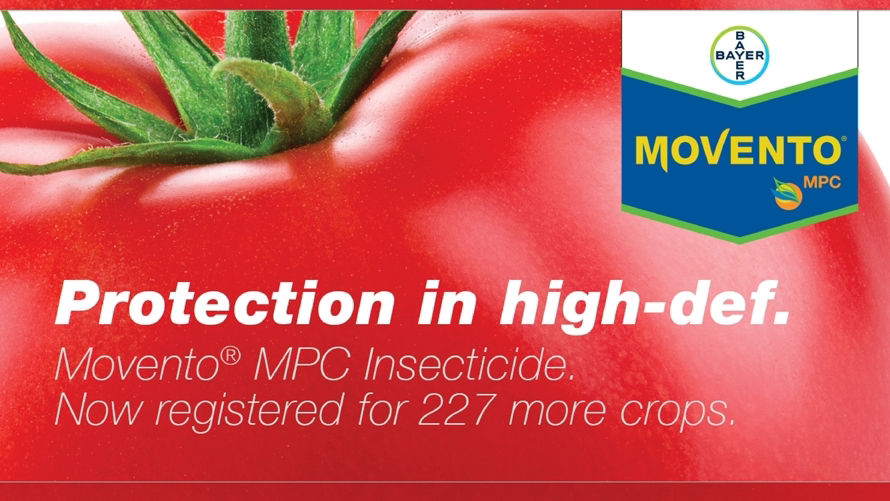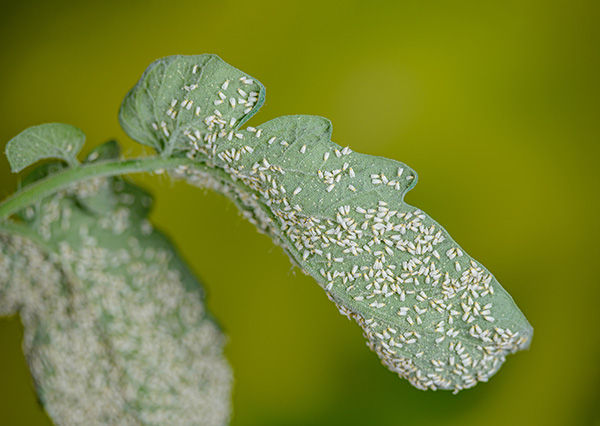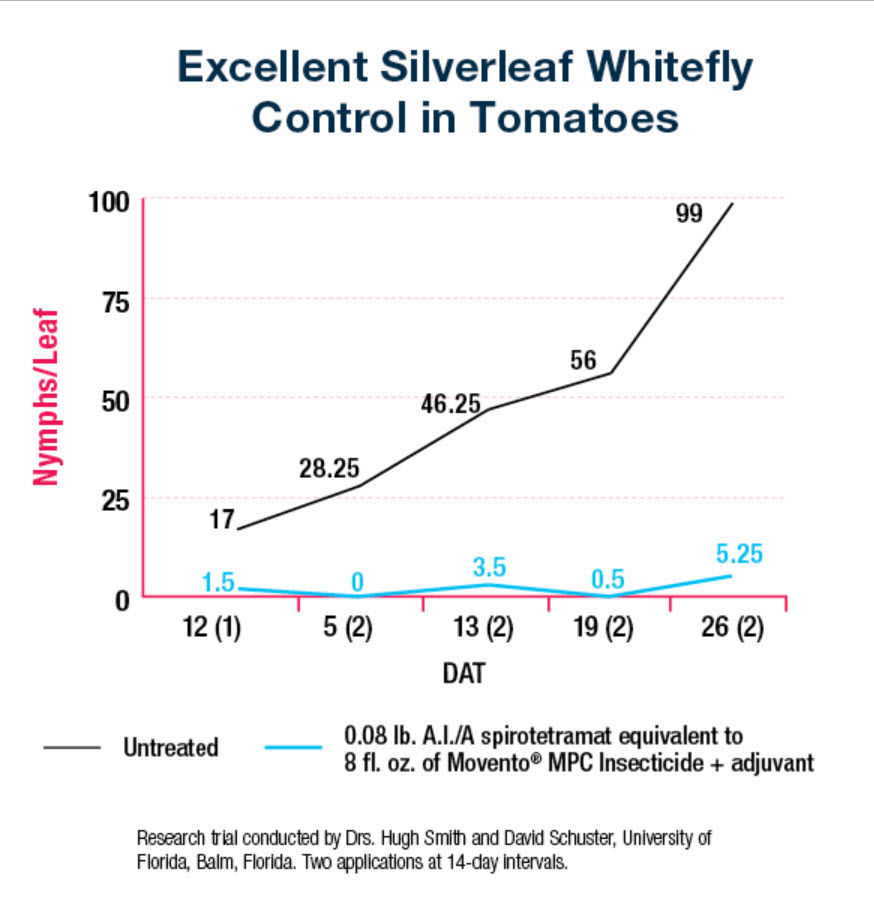Whiteflies 101: What Southeastern Horticulture Growers Should Know
June 29, 2021

Whiteflies, including silverleaf whiteflies, are a severe threat to tomato plants for southeastern growers in Florida and Georgia. These pests infest young tomato plants by laying football-shaped eggs on the underside of the leaves and settle into scale-like, transparent nymphs feeding on sap.
As the tomato plants grow and develop, so do the nymphs into adults, which can cause debilitation of the plant, an increase in mold and honeydew, cause irregular ripening of tomatoes and transmit devastating diseases, such as Tomato yellow leaf curl virus (TYLCV). TYLCV is currently the worst of the tomato viral pathogens affecting southeastern tomato plants, and it can be retained throughout the duration of the plant’s life.1
Not all whiteflies are disease-carrying pests, but allowing these populations to flourish without being proactively managed can impact growers’ yields and profits. Keep reading below about these infestations and how growers can stay ahead of the curve.
Whiteflies 101:

Types of whiteflies that impact tomatoes in the Southeast and why they are problematic
Silverleaf whiteflies have been a major tomato pest in the Southeast. They can go unnoticed on the underside of young tomato leaves, meaning entire fields can be infested as they spread potential diseases, like TYLCV. Whiteflies can also cause irregular ripening in tomato plants before growers have a chance to address these populations.
Importance of proactively managing whitefly populations
Whitefly management can be very difficult to achieve. They are very prolific and can build to very large populations quickly. The key to their management is keeping populations low before they build. Proactive measures must be employed to keep populations from building and ensure the health of young tomato crops, as well as profits for the grower. Learn More
What about natural predators and parasites?
Silverleaf whitefly has at least 15 species of parasites and another 19 species of natural predators in the Southeast. It has been reported that parasitism of whiteflies in southwest Florida organic farms can result in 80% whitefly mortality. Additionally, combined parasitism and predation in untreated weeds has resulted in upwards of 100% mortality. Therefore, it is important to scout not only for the presence of whitefly pests, but to also scout for their natural enemies.2 Natural enemies can be important, however they often take longer to achieve than what a tomato grower needs to combat previously mentioned diseases that these whiteflies may carry.
Prevent whiteflies from thriving
Whitefly management practices, such as insecticidal applications to seedlings 7-10 days prior to transplanting,1 can help prevent these pests from growing to uncontrollable levels. Tomato plants should also receive two foliar applications three and five weeks after transplanting for additional preventive measures. Learn More
How can Bayer help you address these challenges?
Bayer has recently added 227 crops to the Movento® MPC Insecticide label for growers in the Southeast, including fruiting vegetables like tomatoes.
It is a proven, effective, all-around choice for proactive control of whiteflies and other phloem-feeding pests, like aphids, psyllids and nematodes. How it works

Southeast fruiting vegetable growers can address silverleaf whitefly pressures with minimal risk to natural and beneficial insects and establish a strong Integrated Pest Management (IPM) program with Movento MPC Insecticide. Learn more
Growers should contact their local retailer or Bayer representative for information on whiteflies and how Movento MPC Insecticide can help keep their tomato plants healthy and protected.
ALWAYS READ AND FOLLOW PESTICIDE LABEL DIRECTIONS. Movento® MPC Insecticide is only registered in Florida, Georgia, and Alabama. The distribution, sale, or use of an unregistered pesticide is a violation of federal and/or state law and is strictly prohibited. Check with your local dealer or representative for the product registration status in your state. Bayer, Bayer Cross, and Movento® are registered trademarks of Bayer Group. For additional product information, call toll-free 1-866-99-BAYER (1-866-992-2937) or visit our website at www.BayerCropScience.us. Bayer CropScience LP, 800 North Lindbergh Boulevard, St. Louis, MO 63167. ©2021 Bayer Group. All rights reserved.
Sources:
1 Smith, H. A., Stansly, P. A., Seal, D. R., McAvoy, E., Polston, J. E., Gilreath, P. R., Schuster, D. J. “Management of Whiteflies, Whitefly-Vectored Plant Virus, and Insecticide Resistance for Tomato Production in Southern Florida.” University of Florida IFAS Extension, 2019 https://edis.ifas.ufl.edu/publication/IN695
2Schuster, D. “Scouting for Insects, Use of Thresholds and Conservation of Beneficial Insects on Tomatoes”. EDIS, Vol. 2003, no. 14, 1, https://doi.org/10.32473/edis-in482-2003
Disclaimer
Always read and follow pesticide label directions, insect resistance management requirements (where applicable), and grain marketing and all other stewardship practices.